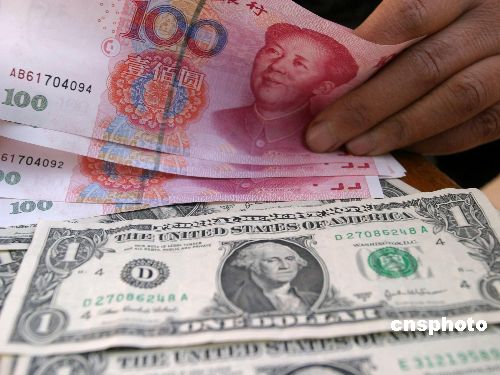Yuan hits new high on year's last trading day
 0 Comment(s)
0 Comment(s) Print
Print E-mail
Xinhua, December 30, 2011
E-mail
Xinhua, December 30, 2011
 |
|
China's currency, the Renminbi, or the yuan, surged 148 basis points to hit a record high of 6.3009 against the U.S. dollar on Friday. [Photo/CNS] |
China's currency, the Renminbi, or the yuan, surged 148 basis points to hit a record high of 6.3009 against the U.S. dollar on Friday, the last trading day of 2011.
Friday's revaluation in the yuan's central parity rate sealed the Chinese currency's appreciation against the greenback at 4.86 percent this year, according to the China Foreign Exchange Trading System.
Calculated in terms of the central parity rate, the yuan has strengthened about 24 percent against the U.S. dollar since China replaced its decade-long link between the yuan and the U.S. dollar and switched to a basket of unspecified currencies.
The yuan remained strong in 2011 even though a weakening for 12 consecutive trading days in November had once triggered concerns that the Chinese currency might head toward a devaluation cycle.
Zhao Qingming, a senior researcher with China Construction Bank, the country's second largest lender by market value, said a stronger yuan in 2011 was near the lower end of what he once predicted would be an appreciation between 5 percent and 7 percent.
"But if not for the devaluation expectation in overseas markets and remarks to go short on the Chinese currency since September, the yuan would have had risen more than 5 percent this year," Zhao said.
Zhao expects the yuan to see bigger fluctuations against the U.S. dollar next year.
In China's foreign exchange spot market, the yuan is allowed to trade 0.5 percent above or below the central parity rate each trading day.
The central parity rate of the yuan against the U.S. dollar is based on a weighted average of prices before the opening of the market each business day.





